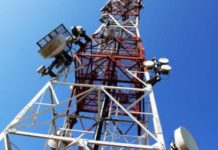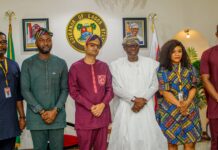By Aaron Ukodie
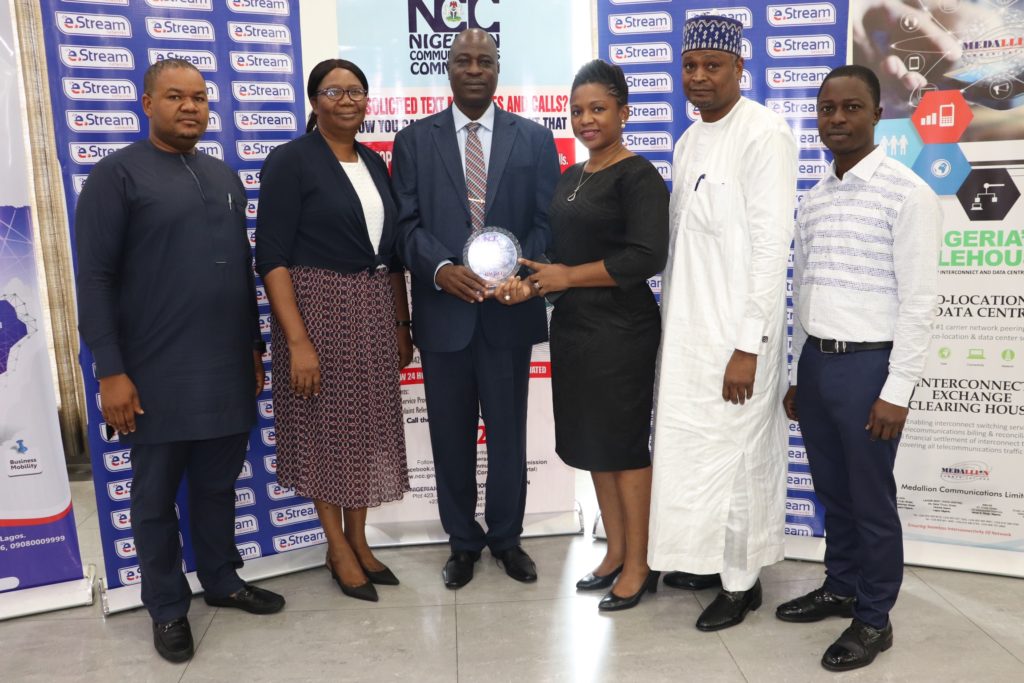
NCC Staff at the eWorld Forum event, savouring the NCC award as Nigeria’s best corporate governance and regulatory agency
Industry players, who gathered in Lagos, on Monday, at the 10th Edition of the eWorld Forum, expressed divergent views on the question of funding digital infrastructure deployment and provision of services across the country. They also spoke on impediments to achieving smart cities vision and whether the vision of smart cities also embraced smart villages.
There were calls for infrastructure and services to be taken to rural areas to cover the existing 195 access gaps in Nigeria, where about 40 million people have not had access to any form of telephony services.
The Nigerian Communications Commission (NCC), however received accolades for the licensing of infracos and the granting of subsidies to them to drive broadband access to the rural areas and its support for industry clamour for right of way to enable deployment of infrastructure across the country.
There were nevertheless warnings that if legacy problems that affected the existing telecom operators, some whose growth has been stunted, are not addressed, the infracos could suffer same faith.
President, Association of Licensed Telecoms Operators of Nigeria (ALTON), Gbenga Adebayo, particularly stressed the need for “NCC to look at the state of health of the licensed firms because some of the holders don’t have physical infrastructure, while those in operation are not faring well. Also, the present challenges will affect the incoming Infracos if nothing is done. When the legacy problem remains the same, we can’t make any progress. We need to take a step further on these challenges,” he added.
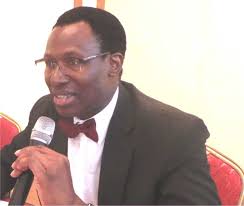
Digital Funding, USPF
The eStream Networks Managing Director, Muyiwa Ogungboye, called for the setting up of an Infrastructure Development Bank to help telcos access fund to build their networks. His call was not that new though, as his position had been canvassed in the past, by the Association of Telecommunications Companies of Nigeria (ATCON), of which he is the current Vice President.
His call was immediately reacted to by Engr Oluwatoyin Asaju, Deputy Director Spectrum Administration, who represented the NCC Executive Vice Chairman. Asaju said there was no need for the setting up of another ICT infrastructure fund as the Universal Services Provision Fund (USPF) domiciled in the NCC already serves that need.
Asaju said, the USPF, from where the infracos are going to be given about N65 billion, is not being accessed by the ICT operators.
Ogunboye was not however convinced by Asaju’s explanation that the USPF fund was good enough to serve the funding needs of industry players who are looking for funds to deploy infrastructure.
According to him there is too much bureaucracy around accessing the USPF. “There is a difference between a grant and a loan. One has bureaucracy; there are bottlenecks in accessing USPF, but when you are going for a bank loan you know for sure what to do, but not so for USPF; the bottlenecks need to be cleared; it needs to be repackaged and reviewed, Ogungboye argued.
Asaju, at this point softened his position by saying that the NCC may take a look at the USPF structure to see if there was need for it to be reviewed.
On Smart Cities, Rural Access
Mobile Software Solutions/Connect Technologies Limited Managing Director, Chris Uwaje, who chaired the panel discussion at the Forum, raised pertinent issues around the idea of smart cities and the need for Nigeria to consider local content input in the broadband development agenda, because as broadband is deployed the pipe for transporting content would become wider and there was need for Nigeria’s content in the whole mix.
He said if the pursuit of smart cities in Nigeria’s infrastructure drive does not include smart villages then the outcome would be urban migration, from the rural communities. “Can we have smart cities and no smart villages? If you want to focus on Lagos, Kano, and Abuja only, the implication will be a massive rural-urban migration. We need rural infrastructures too”.
He said rural villages should benefit from the broadband and emerging technologies. “We should also be talking about a local cloud so our data centre will be in Nigeria and not elsewhere. It is not only about 4G and 5G. The issue of smart cities must go in line with local cloud to increase data security and reduce cost,” he added.
Uwaje stressed that local languages and contents should be considered in any technology adoption to boost local engagement and ensure global competitiveness.
He noted that global talks on broadband development have also included who controls the content that flows through the infrastructure, because who controls the content controls the power and its consequences for the development of nations.

Uwaje also noted that because the smart cities vision is also delivered by broadband infrastructure we seem to be driven by happens in the digital environment. “It’s like the fly following the meet in the market; where there is meet there is always the fly” arguing that Nigeria should not just follow the trend without looking at what can work for her.
He pointed out that you cannot have smart city without having smart villages in a country were 73% of the population are in the rural areas. If you focus on smart cities, the drift on urban migration would increase except you have smart features in rural areas, rural communities.
The consideration of local content should consider our local languages, so that all content would be translated in 25O languages or more, which in turn would provide job and security.
Referring to the forecast that Nigeria’s population would hit 400 million by 2050, Uwaje asked “what type of broadband would we have to serve that population? Would it bring development? What is the purpose and how do we build our own content that would be more responsive to us in engaging the global communities.
He also said in the drive for the smart city vision the NCC should create a migration plan for Internet Service Providers (ISPs) in Nigeria, saying that ISPs must migrate from IPV4 to IPV6 in Nigeria is inevitable. He said countries such as Peru, even in Ghana, Argentina, and Australia have gotten a 24 month plan to all ISP’s to migrate from IPV4 to IPV6.

In the submission of Aremu Olajide, the Managing Director of XperTeam, Nigeria currently have a weak foundation for achieving Smart cities. The major problem in achieving smart cities and access to the rural areas is how to provide fibre on which the wireless services can run on, because it is fibre that can make access to the rural areas possible and ensure that smart cities vision are achieved.
Olajide said Nigeria’s infrastructure foundation based on wireless infrastructure is a major impediment for the smart city and rural access vision.
He said, “We need fibre capacity everywhere, unfortunately we started with wireless and we have it now everywhere and that is the problem of smart city. Smart city does not necessarily mean getting services to the urban areas but being able to use ICT to manage infrastructure and manage services, such as transportation and to serve people. The problem of smart cities is the services backhaul to the local end”.
“ While we are considering 5G, we should get 3G and 4G to the rural areas so that they can benefit from broadband drive”, Olajide added.
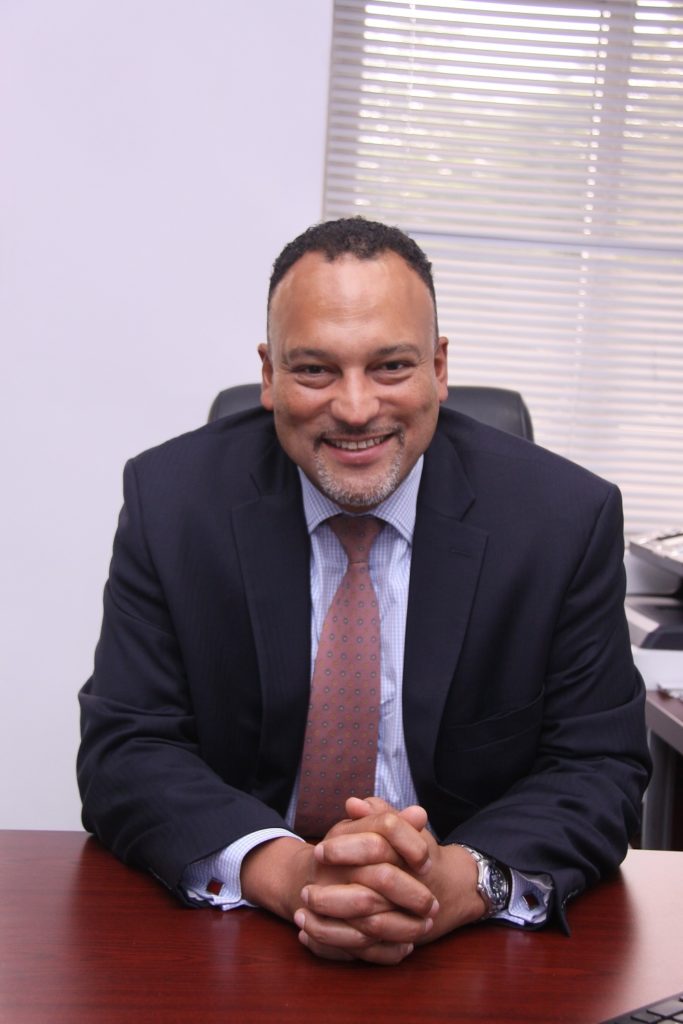
In the view of Rack Centres’ Managing Director, Tunde Coker driving appropriate behaviour around demands for right of way, pricing, services delivery and quality of services is key in achieving the industry’s quests for broadband development.
The industry needs to do certain things that drive appropriate behaviour that demonstrate that “we can deliver connectivity at affordable rate”.



